“I tell you, no! But …
What day’s NEWS doesn’t HEADLINE: DISASTER? The world asks why God would allow this. Were those killed worse sinners than others, so God punished them by death?
This is how we think. Even if we acknowledge sin (in others) we want to blame God for punishment, especially in providential ‘acts of God’ which end lives unexpectedly.
The Good News of Luke briefly describes two such incidents.
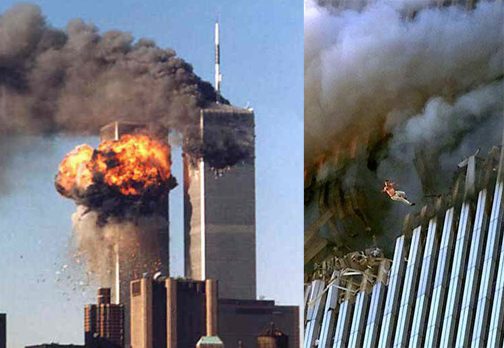
Such disasters do imprint our memories for a time, for example in this 21st century just mention of NINE-ELEVEN.
Like the unexpected question, Who Sinned? , here Jesus gives a similar answer to disaster similar to the “WHY” about a man born blind from birth.
This time the crowds had complained of persecution of Galileans by the Roman Prefect of Judea Pontius Pilate. Jesus responds to the crowds with a rhetorical question about sin. (You need to think about what the Lord tells us here about the nature of sin and how we must approach it.)
Unless you repent …
Luke 13:
2 Jesus answered, “Do you think that these Galileans were worse sinners than all the other Galileans because they suffered this way? 3 I tell you, no!
But unless you repent, you too will all perish.”
Were these who died at the hand of Pilate worse sinners? NO.
The Messiah then addresses a local disaster, a recent act of God well-known to Jerusalem.
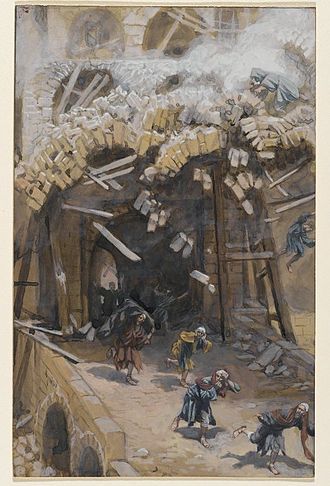
4 Or those eighteen who died when the tower in Siloam fell on them—do you think they were more guilty than all the others living in Jerusalem?
5 I tell you, no!
But unless you repent, you too will all perish.”
‘Unless WE REPENT,’ the Messiah’s listeners must have thought? This rabbi preaches the same message as John the Baptizer and the Prophets of old.
Then in typical His typical teaching technique, Jesus tells a symbolic parable to illustrate his point that we must repent or we will also perish.
The fig tree, an ancient symbol of life in Israel and the middle east, represents prosperity, peace and righteousness throughout the Bible.
Parable of the Fig Tree
6 Then he told this parable:
“A man had a fig tree growing in his vineyard, and he went to look for fruit on it but did not find any.
No life in the tree, no prosperity for the owner of the vineyard, no peace here in Jerusalem where fig trees blossom and bear fruit.
7 Then he said to the keeper of his vineyard,
‘Look, for three years I have come seeking fruit on this fig tree and find none. Cut it down; why does it use up the ground?’
The Son of Man, the Messiah has been sowing righteousness in the land for three years. Does Jesus ask this crowd of Jews (keeper of God’s vineyard), ‘Why has your faith not yielded fruit?’
Some Jews have believed and followed their Messiah. A faithful servant in God’s vineyard would plea for mercy for the vine. So his repentant answer would ask the Owner of the vineyard for mercy. He will promise to do his Lord’s work of righteousness once more.
8 “‘Sir,’ the man replied, ‘leave it alone for one more year, and I’ll dig around it and fertilize it. 9 If it bears fruit next year, fine! If not, then cut it down.’”
You too will all perish
There’s something about disaster and death which gets demands our attention: our own mortality.
Any story of suffering and sudden death of others reminds us of our own helpless before Almighty God. And some will recall their own past sins and immediacy of repentance.
One recent story of annual flooding in Jerusalem reminds us of the suddenness of the expected. These events often reveal the heritage of our past in addition to the mortality of its victims.
Siloam was an area just outside the walls of Jerusalem on the southeast side of the city. A spring-fed pool was there, which was the scene of one of Christ’s miracles (John 9). The tower of Siloam may have been part of an aqueduct system or a construction project that Pilate had begun. In any case, the tower fell, and eighteen people were killed in the catastrophe.
Why did Jesus mention the tower of Siloam in Luke 13:4?
Why mention a recent disaster?
Second COVID-19 death sparks fears, lockdown in Italian towns – Agence France-Presse
Posted at Feb 22 2020 08:08 PM [local time]
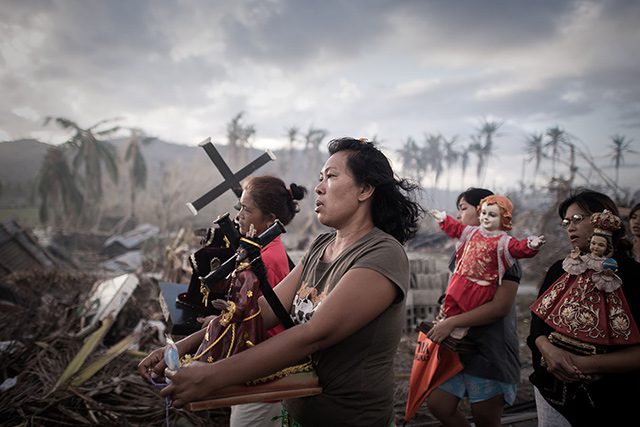
I could have chosen pictures & NEWS from just this month, February 2020, even from contemporary Jerusalem where Jesus addressed sin and disaster in speaking of both the tower and pool of Siloam.
Refugees of natural disasters, even so common as annual hurricanes or typhoons (as pictured here from 2013 in the Philippines) remind us that our earthly home is temporary. The displaced ships in Luzon Philippines (above) are part of a witness by Pastor BERMIE DIZON who lived there at the time. He witnesses comparison to Jesus’ teachings about the tower and pool of Siloam.
“I was only a few miles away from the volcano, Mt. Pinatubo when it exploded in 1991. At that very moment of explosion, I really thought my family and I will die buried like those in the ancient city of Pompeii.
Pastor Bermie Dizon of GCI Ministries, Luzon Philippines bermiedizon.com/disasters/
I ask the same question of Jesus of those who perished in the fall of the Tower of Siloam:
Contemporary application by paraphrase of Jesus’ questions
“Do you think that these FILIPINOS were more sinful than all the other FILIPINOS because they suffered these things?
3 No, I tell you; but unless you repent, you will all perish as well.
COVID-19 tally: 76,785 cases, 2,249 deaths, 34 cases in the U.S.
Published: Feb 21, 2020 2:50 p.m. ET
“Or those two thousand killed by the #Coronavirus —do you think they were more sinful than all the other people who live in China and other places in this world?
5 No, I tell you; but unless you repent, you will all perish as well.”
Therefore, feed your faith
“‘… Perhaps it will produce fruit next year, but if not, you can cut it down.’”
Luke 13:9 CSB – Jesus’ Parable of the Barren Fig Tree
God-willing we will return to the pool of Siloam in John 9. To be continued...
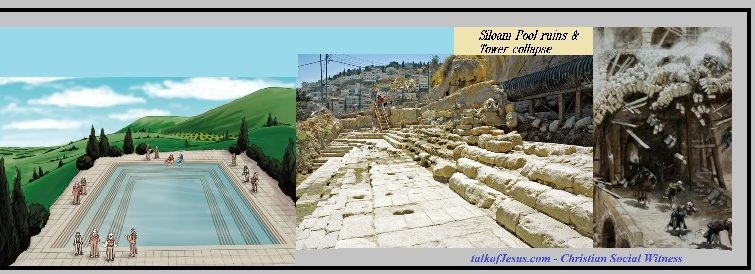

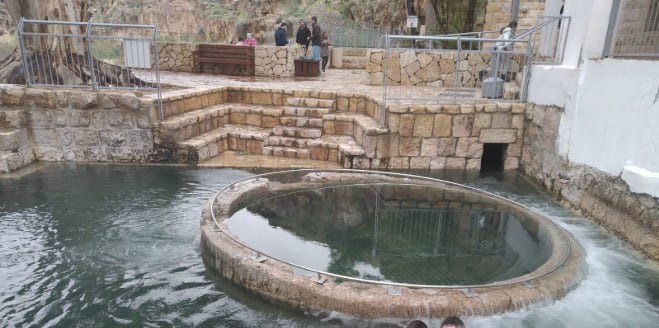


Leave a Reply